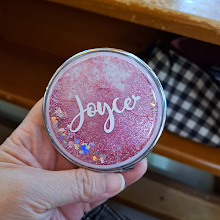 |
| Source: rcpsych.ac.uk |
Recently, my Facebook news feed is bombarded with the news about a new mother who fell to her death from the 16th floor of her condo due to stress for being unable to breastfeed her baby and was bored with no work to do around the house. There are lots of responses; some might be true, some downright nonsensical. But one thing rings true: postpartum / postnatal depression (PPD / PND).
I did some research. The information below comes from postpartumdepression.web.unc.edu/
Postpartum mood and anxiety disorders exist on a spectrum, from relatively mild and non-clinically significant postpartum blues to severely impairing episodes of postpartum depression or postpartum psychosis.
Postpartum Blues
- occurs in 50-85% of women during the first few weeks postpartum
- occurs in 50-85% of women during the first few weeks postpartum
- symptoms: irritability, anxiety, fluctuating mood, and increased emotional reactivity
- mild and non-impairing, and spontaneously remit around two weeks postpartum; not considered as psychiatric disorder
The difference between baby blues and depression is very obvious. Mothers generally get better in two to three weeks for baby blues. The insidious depression continues — and it only gets worse.
Postpartum Depression
- occurs in 13% of mothers in first year postpartum
- develops three weeks after delivery and persists for at least three months
- symptoms: excessive guilt, anxiety, depressed mood, insomnia/hypersomnia, suicidal ideation, fatigue
- over one-half of women remain depressed at 5-9 months and one-third of women are still depressed from 12-18 months after childbirth
Postpartum Psychosis
- occurs in 0.1-0.2% of mothers in first three months postpartum
- symptoms: mixed or rapid cycling between manic and depressive episodes, agitation, delusions, hallucinations, disorganized behavior, cognitive impairment, low insight.
- severe, considered psychiatric emergency; often necessitates hospitalization
What can you do about it?
I definitely had postpartum blues. I faced it, acknowledged it, and I survived. I wasn't ashamed to tell my husband, "Hey, I don't know why am I crying without reason but I'm telling you I'm crying." But it really wasn't easy.
As a new mom, right after I got home from the hospital, I felt super overwhelmed because this new little human being kept on wanting to latch on and cry and I had no idea if he was having enough milk or not or if something was amiss. Why was his poop still green on the seventh day? Why was his bilirubin count so freaking high? Would he suddenly drop dead?
I have never felt so emotionally or physically challenged in my life. I hated being not in control, I felt defeated, hopeless, and in despair.
As a new mom, right after I got home from the hospital, I felt super overwhelmed because this new little human being kept on wanting to latch on and cry and I had no idea if he was having enough milk or not or if something was amiss. Why was his poop still green on the seventh day? Why was his bilirubin count so freaking high? Would he suddenly drop dead?
I have never felt so emotionally or physically challenged in my life. I hated being not in control, I felt defeated, hopeless, and in despair.
So, what exactly did I go through? Read this blog post: Behind the scenes: First 4 weeks of motherhood and this one: Surviving the Fourth Trimester.
And this little surprise card saved me.
I received this surprise card from my husband and my then three weeks old baby boy. I wasn't in a good shape back then. I was drowning in tears almost every day. I guessed my husband saw the situation. A man of few words, he managed to come up with such thoughtful way to show his support.
So, yes, family support is very important. We women are vulnerable to postpartum hormonal changes, something that we cannot control. But we can empower ourselves by reading up about postpartum blues and depression. We can learn to identify the symptoms and we can ask for our family's support. At the first sign of problem, please don't hesitate to talk to your family members.
One more thing, NO ONE can be the best mother to your baby except YOU. I repeat, NO ONE can replace you. Please remember this and don't compare yourself to another mother. If you must compare, compare yourself with yourself from one week ago or two months ago.
It gets better. Really. Hang in there.
You will be proud of yourself one year later or more when you look back.
Be a warrior, not a worrier. Okay?
So, yes, family support is very important. We women are vulnerable to postpartum hormonal changes, something that we cannot control. But we can empower ourselves by reading up about postpartum blues and depression. We can learn to identify the symptoms and we can ask for our family's support. At the first sign of problem, please don't hesitate to talk to your family members.
One more thing, NO ONE can be the best mother to your baby except YOU. I repeat, NO ONE can replace you. Please remember this and don't compare yourself to another mother. If you must compare, compare yourself with yourself from one week ago or two months ago.
It gets better. Really. Hang in there.
You will be proud of yourself one year later or more when you look back.
Be a warrior, not a worrier. Okay?
























What a sad ending to the new mum. Now her baby is left motherless. Sigh!
ReplyDeleteI also have mild depression and most obvious was after my 3rd delivery. Cried for no reason, upset and agitated easily and keep thinking nonsense stuff. Just felt unloved in the room. I guess that was why they called it confinement? ^^
I'm actually quite worried having to go through pregnancy and child birth again coz I'm quite prone to feel depressed when I'm stressed. Lol.
Delete